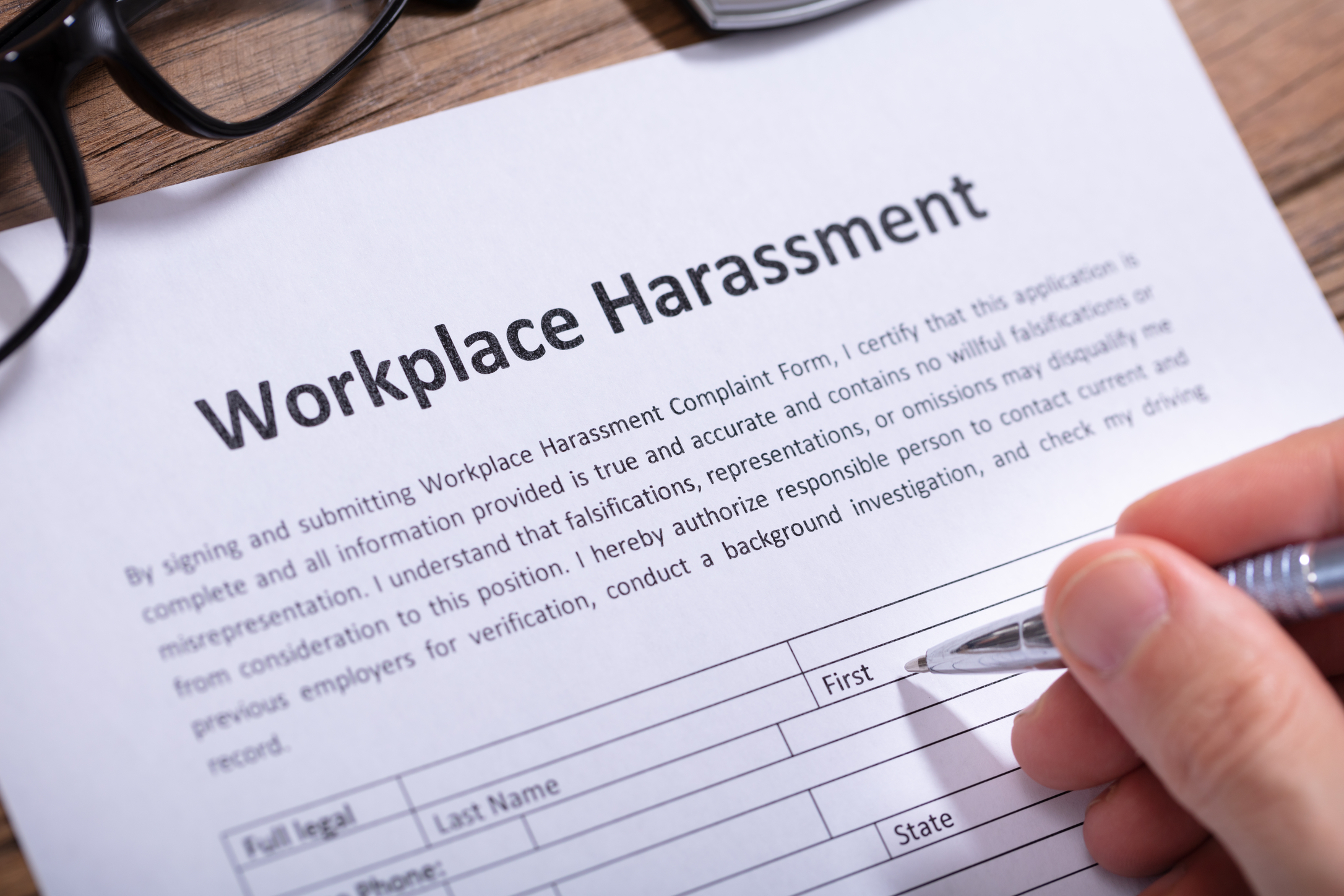June 16, 2025
Understanding Your Rights: Harassment in Domestic and Municipal Law Contexts
Practice Area: Family Law | Tag: Domestic Violence

Harassment isn’t limited to the workplace. It can happen in your home, in your community, or during a contentious divorce or custody battle. At Heymann and Fletcher, we don’t practice employment law. Still, we have decades of experience representing clients in New Jersey who are dealing with harassment in the context of domestic violence or local disputes that end up in municipal court.
Whether it's threatening behavior from a partner or ex-spouse, repeated contact that violates a restraining order, or public disturbances that escalate into legal issues, harassment is not something you should tolerate. Our attorneys are here to help you protect yourself, your family, and your peace of mind.
This blog will walk you through how harassment is defined under New Jersey law, the steps to securing a restraining order, and what to expect from municipal court proceedings. If you’re facing persistent and unwanted contact or fear for your safety, knowing your legal options can make all the difference.
What Constitutes Harassment Under New Jersey Law
The Legal Definition Matters
Under N.J.S.A. 2C:33-4, harassment includes a range of behaviors intended to alarm or seriously annoy another person. This can include making anonymous calls, sending threatening messages, or showing up repeatedly without consent. Harassment is often charged as a petty disorderly persons offense but can become part of a more serious domestic violence claim if a prior relationship exists.
Domestic Violence and the Prevention Act
If the harassing behavior comes from someone you have a current or former relationship with, it may qualify as domestic violence under the New Jersey Prevention of Domestic Violence Act. In that case, you may be eligible for a temporary or final restraining order (TRO/FRO), which can legally bar the person from contacting you or visiting your home or workplace.
Taking Immediate Legal Action
Filing for a Restraining Order
Victims of domestic harassment can file for a restraining order through their county courthouse. The process begins with a temporary order, which is often granted on the same day. A hearing for a final restraining order is typically scheduled within ten days. It’s crucial to provide evidence (texts, emails, voicemails, photos) to support your claims.
What Happens in Municipal Court
When harassment occurs outside a domestic relationship—for instance, between neighbors, acquaintances, or strangers—cases are generally handled in municipal court. These proceedings are less formal than Superior Court but still require evidence and preparation. Our legal team can represent you to ensure your voice is heard and your safety is prioritized.
Evidence is Your Strongest Asset
Document Everything
Whether you're filing a restraining order or preparing for a court hearing, documentation is key. Save text messages, take screenshots of social media threats, and keep a written record of incidents with dates, times, and locations. The more specific you are, the more persuasive your case becomes.
Witness Testimony Can Help
In harassment cases, third-party accounts can support your version of events. If someone else witnessed an incident or can confirm a pattern of behavior, their testimony can bolster your credibility and strengthen your legal claim.
The Emotional Toll of Harassment
Don’t Minimize Your Experience
Many victims second-guess their feelings or try to downplay the behavior. But harassment, no matter how subtle, chips away at your sense of security. You deserve to feel safe in your home and community. Seeking help is not a sign of weakness—it’s a vital first step toward reclaiming your peace of mind.
Legal Protection = Emotional Relief
The relief of having legal boundaries in place can be life-changing. Knowing that someone is legally barred from contacting you or that you have representation in court allows you to begin healing and focus on your future.
Conclusion
Harassment doesn’t need to escalate to violence before you seek help. The law offers protection, whether it’s repeated texts from an ex or disruptive behavior in your neighborhood. At Heymann and Fletcher, we can guide you through every step from filing the right paperwork to representing you in court. You don’t have to go through this alone.
Why Heymann and Fletcher
With over 40 years of experience serving New Jersey residents, Heymann and Fletcher have built a reputation on trust, compassion, and fierce legal advocacy. Our attorneys have handled hundreds of harassment-related cases in the context of domestic violence and municipal law. We know the court systems. We understand the statutes. And we care deeply about protecting your rights.
If you’re dealing with harassment in a domestic or municipal context, don’t wait to take action. Contact Heymann and Fletcher today to schedule a confidential consultation. Visit heymannfletcherlaw.com or call 973-895-4400 to speak with an attorney who understands what you’re going through and is ready to help you move forward safely and confidently.
